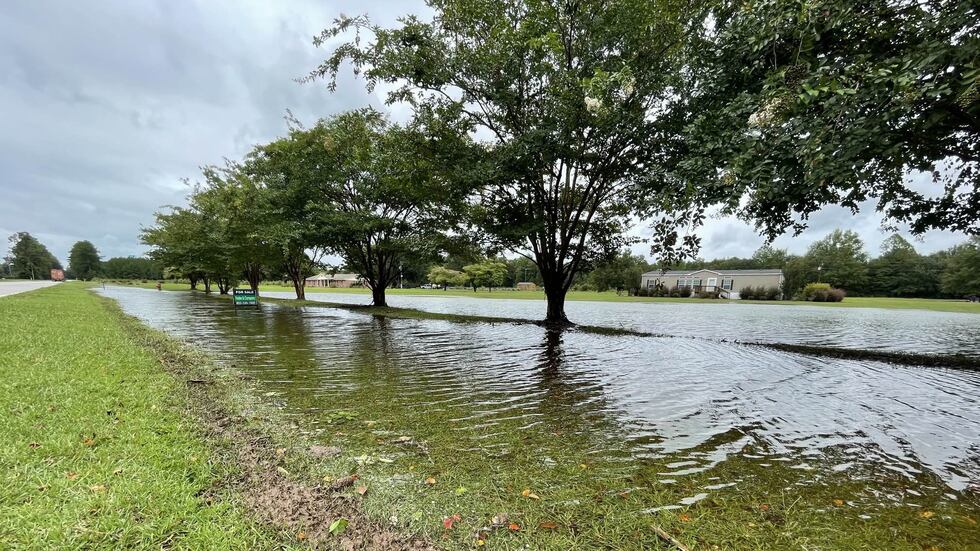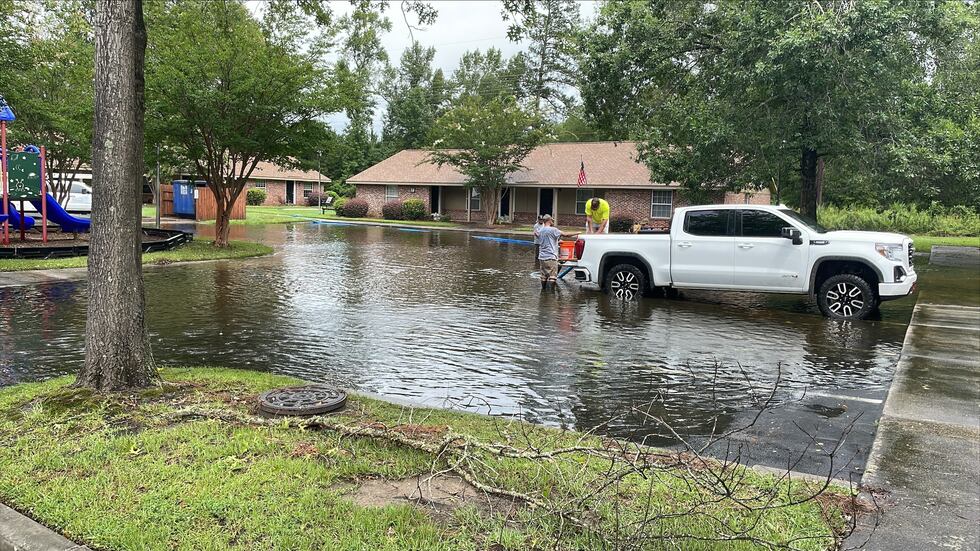Amid record rainfall, how can you stay safe in floods?
The extreme weather we’re seeing this week from Tropical Storm Debby shows it doesn’t take a catastrophic hurricane to cause significant damage.
The slow-moving system dumped historic levels of rain on parts of the CSRA on Tuesday. As the storm lingered over the region, rain continued to fall Wednesday. And after moving out to sea, the storm is expected to return inland Thursday.
MORE FROM NEWS 12:
- School closures due to impacts from Tropical Storm Debby
- Washouts, floods and mud: Debby leaves damage across CSRA
- ‘The spirit of giving’: Red Cross volunteers ready to help storm victims
- Amid Debby’s rain, concerns swirl around private S.C. dams
- Where can your pets go if you have to evacuate?
- Ga. 19-year-old killed after tree falls through home
As weather patterns change due to global warming and damaging storms become more frequent, even in places where people thought they were relatively safe, experts say disaster preparation can make all the difference.
What should you do if you face record rainfall?
Well in advance of extreme weather, it’s important to consider whether your home meets updated building codes and to become familiar with your insurance coverage, said Victoria Salinas, who leads the Federal Emergency Management Agency’s resilience program.
As storms draw near, checking in on neighbors, g up for real-time city, county and FEMA weather alerts and listening to the news and local officials are also key.

“Make sure that things like the gutters are clear,” Salinas added. “If you live in an area where there are storm drains and stormwater systems, helping make sure that the water has a place to flow both on your property and on your block, is really important.”
“Sandbags can play a really important role” if used correctly, she added. “Sandbags need to be outside of your door, against the door, where the water may likely enter. If the water is likely to be there for a long period of time, it’s important to make sure that sandbags are also wrapped with plastic.”
Should you try to evacuate or stay put?
If there are local orders to evacuate, people need to listen to them, gather important documents, get enough gas to drive out and be prepared to be away for an extended period of time, said Jeannette Sutton, associate professor at the University at Albany.
“Just because an event seems like it’s not possible, I would hope that that wouldn’t affect people’s decision,” she added. “Air on the side of caution.”
As major storms move in, there often comes a point when leaving is more hazardous than staying put.

“Unfortunately we usually lose way too many lives in these big flood events because people try to drive through flooded roadways,” said Phil Klotzbach, senior research scientist at Colorado State University’s Department of Atmospheric Science.
Charleston shut down all roads into the city’s downtown peninsula for 32 hours to avoid high water rescues. Driving can also cause wakes that send floodwater over the tops of sandbags.
“Bottom line is we need you to stay home until this es,” Charleston Mayor William Cogswell said. “We especially don’t need any yahoos driving through the water and causing damage to properties.”
How can you prepare your home and belongings?
Moving keepsakes, furniture and things that are valuable to upper levels, if that’s an option, and making sure sump pump batteries are fully charged are shorter-term ways to prepare, along with ensuring there’s enough food, water and medical supplies, FEMA’s Salinas said.

“If I had a car, I would probably try and put it in a parking structure, up above where the waters might flood so that my car doesn’t flood,” recommends Jeff Masters, founder of Weather Underground, now with Yale Climate Connections.
“Waterproofing your home is always a good idea,” he said. “And it’s always smart to not have your backup generators, for instance, down in the basement.”
What can you do once a disaster has started?
If people aren’t able to prepare for floods in time, they should move to the highest level of their home, experts say, or seek out a safe shelter.
However, if high wind and tornadoes are a threat, it could be dangerous to be too high up, experts say. That’s where checking forecasts is critical.
Copyright 2024 WRDW/WAGT. All rights reserved.














